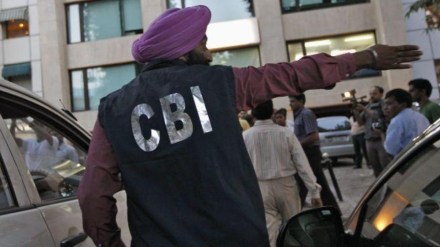The Central Bureau of Investigation (CBI) has filed a charge sheet against 20 institutes and 105 persons in Shimla on Friday. With the filing of charge sheets against 20 institutions and 105 individuals, the CBI has wrapped up its investigation into the multi-crore scholarship fraud in Himachal Pradesh, officials announced on Friday.
Charge sheets have been filed against educational institution owners, the Directorate of Higher Education, Shimla staff, bank officials, and other private individuals implicated in the misappropriation of funds under the scholarship and fee reimbursement programme, which was launched by the Union government and executed by the state government to assist students belonging to the SC, ST, and OBC categories, the CBI said in a statement.
The scholarship scam began in 2012–13 when the state’s 36 schemes for pre-matric and post-matric scholarships for students who belong to Scheduled Castes (SC), Scheduled Tribes (ST), and Other Backward Class (OBC) were not funded to the qualified applicants. 80 per cent of the scholarship funds went to private colleges and universities. The scam was discovered as a result of allegations that for the previous five years, scholarships had not been awarded to pupils enrolled in government schools located in the tribal Spiti valley in the Lahaul and Spiti district of Himachal Pradesh.
A case was registered by the Central Bureau of Investigation (CBI) in the year 2019 on the request of the Himachal Pradesh government against the private educational institutions in Himachal for fake and fraudulent claims of scholarships of about Rs 181 crore during the year 2013 to 2017.
Prior to this, some people’s properties had around 30 searches, which resulted in the discovery of papers that implicated them. 19 defendants—including the chairman, vice chairman, directors, and staff members of the educational institutions—as well as bank representatives and education department officials were subsequently taken into custody. Approximately 32,000 students had their scholarships deducted from their accounts, and 80 percent of the funds were given to private schools.
In the scholarship scandal, 22 academic institutions were under investigation by the CBI for reportedly urging students to pay money in order to receive their scholarships, in addition to committing irregularities.
The investigations had also revealed that fake letterheads were used by several educational institutions to show false affiliation in order to mislead the education department which failed to ensure physical verification of the infrastructure and the strength of students. The other discrepancies included non-submission of Aadhaar numbers of the students by the institutions, using same Aadhaar accounts to withdraw the scholarships of multiple students who did not exist and the opening of fake accounts in three nationalised banks.
Arvind Rajta, the higher education department’s then superintendent grade-II, was in charge of awarding scholarships. He gave over Rs 28 crore to nine fictitious schools, in which his wife held a 33 per cent ownership. Additionally, Rajta had earlier been arrested in the case.
The Enforcement Directorate (ED), which is also investigating the case to probe the money laundering angle, had made arrests in the past. The ED had initiated a money laundering investigation on the basis of an FIR registered by the CBI under sections 409 (misappropriation), 419 (cheating by personation), 465 (forgery), 466 (forgery in electronic documents) and 471 (using forged document as genuine) of IPC on May 8, 2019.
